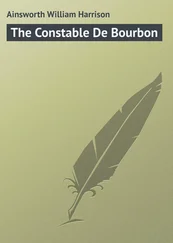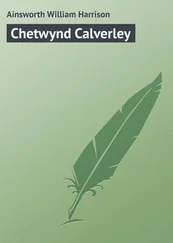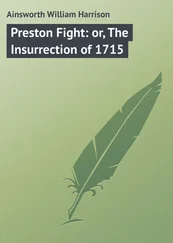W. Ainsworth - Rookwood
Здесь есть возможность читать онлайн «W. Ainsworth - Rookwood» весь текст электронной книги совершенно бесплатно (целиком полную версию без сокращений). В некоторых случаях можно слушать аудио, скачать через торрент в формате fb2 и присутствует краткое содержание. Жанр: Старинная литература, на русском языке. Описание произведения, (предисловие) а так же отзывы посетителей доступны на портале библиотеки ЛибКат.
- Название:Rookwood
- Автор:
- Жанр:
- Год:неизвестен
- ISBN:нет данных
- Рейтинг книги:4 / 5. Голосов: 1
-
Избранное:Добавить в избранное
- Отзывы:
-
Ваша оценка:
- 80
- 1
- 2
- 3
- 4
- 5
Rookwood: краткое содержание, описание и аннотация
Предлагаем к чтению аннотацию, описание, краткое содержание или предисловие (зависит от того, что написал сам автор книги «Rookwood»). Если вы не нашли необходимую информацию о книге — напишите в комментариях, мы постараемся отыскать её.
Rookwood — читать онлайн бесплатно полную книгу (весь текст) целиком
Ниже представлен текст книги, разбитый по страницам. Система сохранения места последней прочитанной страницы, позволяет с удобством читать онлайн бесплатно книгу «Rookwood», без необходимости каждый раз заново искать на чём Вы остановились. Поставьте закладку, и сможете в любой момент перейти на страницу, на которой закончили чтение.
Интервал:
Закладка:
He who has wandered amidst the Alps must have often had occasion to witness the wonderful surefootedness of that mountain pilot, the mule. He must have remarked how, with tenacious hoof, he will claw the rock, and drag himself from one impending fragment to another, with perfect security to his rider; how he will breast the roaring currents of air, and stand unshrinking at the verge of almost unfathomable ravines. But it is not so with the horse: fleet on the plain, careful over rugged ground, he is timid and uncertain on the hill-side, and the risk incurred by Luke and Turpin, in their descent of the almost perpendicular sides of the cliff, was tremendous. Peter watched them in their descent with some admiration, and with much contempt.
"He will break his neck, of a surety," said he; "but what matters it? As well now as hereafter."
So saying, he approached the verge of the precipice, where he could see them more distinctly.
The passage along which Luke rode had never before been traversed by horse's hoof. Cut in the rock, it presented a steep zig-zag path amongst the cliffs, without any defence for the foot traveller, except such as was afforded by a casual clinging shrub, and no protection whatever existed for a horseman; the possibility of anyone attempting the passage not having, in all probability, entered into the calculation of those who framed it. Added to this, the steps were of such unequal heights, and withal so narrow, that the danger was proportionately increased.
"Ten thousand devils!" cried Turpin, staring downwards; "is this the best road you have got?"
"You will find one more easy," replied Luke, "if you ride for a quarter of a mile down the wood, and then return by the brook side. You will meet me at the priory."
"No," answered the highwayman, boldly; "if you go, I go too. It shall never be said that Dick Turpin was afraid to follow where another would lead. Proceed."
Luke gave his horse the bridle, and the animal slowly and steadily commenced the descent, fixing his fore-legs upon the steps, and drawing his hinder limbs carefully after him. Here it was that the lightness and steadiness of Turpin's mare was completely shown. No Alpine mule could have borne its rider with more apparent ease and safety. Turpin encouraged her by hand and word; but she needed it not. The sexton saw them, and, tracking their giddy descent, he became more interested than he anticipated. His attention was suddenly drawn towards Luke.
"He is gone," cried Peter. "He falls—he sinks—my plans are all defeated—the last link is snapped. No," added he, recovering his wonted composure, "his end is not so fated."
Rook had missed his footing. He rolled stumbling down the precipice a few yards. Luke's fate seemed inevitable. His feet were entangled in the stirrup, he could not free himself. A birch-tree, growing in a chink of the precipice, arrested his further fall. But for this timely aid all had been over. Here Luke was enabled to extricate himself from the stirrup and to regain his feet; seizing the bridle, he dragged his faulty steed back again to the road.
"You have had a narrow escape, by Jove," said Turpin, who had been thunderstruck by the whole proceeding. "Those big cattle are always clumsy; devilish lucky it's no worse."
It was now comparatively smooth travelling; but they had not as yet reached the valley, and it seemed to be Luke's object to take a circuitous path. This was so evident, that Turpin could not help commenting upon it.
Luke evaded the question. "The crag is steep there," said he; "besides, to tell you the truth, I want to surprise them."
"Ho, ho!" laughed Dick. "Surprise them, eh? What a pity the birch-tree was in the way; you would have done it properly then. Egad, here's another surprise."
Dick's last exclamation was caused by his having suddenly come upon a wide gully in the rock, through which dashed a headlong torrent, crossed by a single plank.
"You must be mad to have taken this road," cried Turpin, gazing down into the roaring depths in which the waterfall raged, and measuring the distance of the pass with his eye. "So, so, Bess!—Ay, look at it, wench. Curse me, Luke, if I think your horse will do it, and, therefore, turn him loose."
But Dick might as well have bidden the cataract to flow backwards. Luke struck his heels into his horse's sides. The steed galloped to the brink, snorted, and refused the leap.
"I told you so—he can't do it," said Turpin. "Well, if you are obstinate, a wilful man must have his way. Stand aside, while I try it for you." Patting Bess, he put her to a gallop. She cleared the gulf bravely, landing her rider safely upon the opposite rock.
"Now then," cried Turpin, from the other side of the chasm.
Luke again urged his steed. Encouraged by what he had seen, this time the horse sprang across without hesitation. The next instant they were in the valley.
For some time they rode along the banks of the stream in silence. A sound at length caught the quick ears of the highwayman.
"Hist!" cried he; "some one sings. Do you hear it?"
"I do," replied Luke, the blood rushing to his cheeks.
"And could give a guess at the singer, no doubt," said Turpin, with a knowing look. "Was it to hear yon woodlark that you nearly broke your own neck, and put mine in jeopardy?"
"Prithee be silent," whispered Luke.
"I am dumb," replied Turpin; "I like a sweet voice as well as another."
Clear as the note of a bird, yet melancholy as the distant dole of the vesper-bell, arose the sound of that sweet voice from the wood. A fragment of a Spanish gipsy song it warbled; Luke knew it well.
The tender trembling of a guitar was heard in accompaniment of the ravishing melodist.
The song ceased.
"Where is the bird?" asked Turpin.
"Move on in silence, and you shall see," said Luke; and, keeping upon the turf, so that his horse's tread became inaudible, he presently arrived at a spot where, through the boughs, the object of his investigation could plainly be distinguished, though he himself was concealed from view.
Upon a platform of rock, rising to the height of the trees, nearly perpendicularly from the river's bed, appeared the figure of the gipsy maid. Her footstep rested on the extreme edge of the abrupt cliff, at whose base the water boiled in a deep whirlpool, and the bounding chamois could not have been more lightly poised. One small hand rested upon her guitar, the other pressed her brow. Braided hair, of the jettiest die and sleekest texture, was twined around her brow, in endless twisted folds.
And so exuberant was this rarest feminine ornament, that, after encompassing her brow, it was passed behind, and hung down in long thick plaits almost to her feet. Sparkling, as the sunbeams that played upon her dark yet radiant features, were the large, black, oriental eyes of the maiden, and shaded with lashes long and silken. Hers was a Moorish countenance, in which the magnificence of the eyes eclipses the face, be it ever so beautiful (an effect to be observed in many of the paintings of Murillo), and the lovely contour is scarcely noticed in the gaze which those long, languid, luminous orbs attract. Sybil's features were exquisite, yet you looked only at her eyes—they were the lodestars of her countenance. Her costume was singular, and partook, like herself, of other climes. Like the Andalusian dame, her choice of colour inclined towards black, as the material of most of her dress was of that sombre hue. A bodice of embroidered velvet restrained her delicate bosom's swell; a rich girdle, from which depended a silver chain, sustaining a short poniard, bound her waist; around her slender throat was twined a costly kerchief; and the rest of her dress was calculated to display her slight, yet faultless, figure to the fullest advantage.
Unconscious that she was the object of regard, she raised her guitar, and essayed to touch the chords. She struck a few notes, and resumed her romance.
Читать дальшеИнтервал:
Закладка:
Похожие книги на «Rookwood»
Представляем Вашему вниманию похожие книги на «Rookwood» списком для выбора. Мы отобрали схожую по названию и смыслу литературу в надежде предоставить читателям больше вариантов отыскать новые, интересные, ещё непрочитанные произведения.
Обсуждение, отзывы о книге «Rookwood» и просто собственные мнения читателей. Оставьте ваши комментарии, напишите, что Вы думаете о произведении, его смысле или главных героях. Укажите что конкретно понравилось, а что нет, и почему Вы так считаете.












